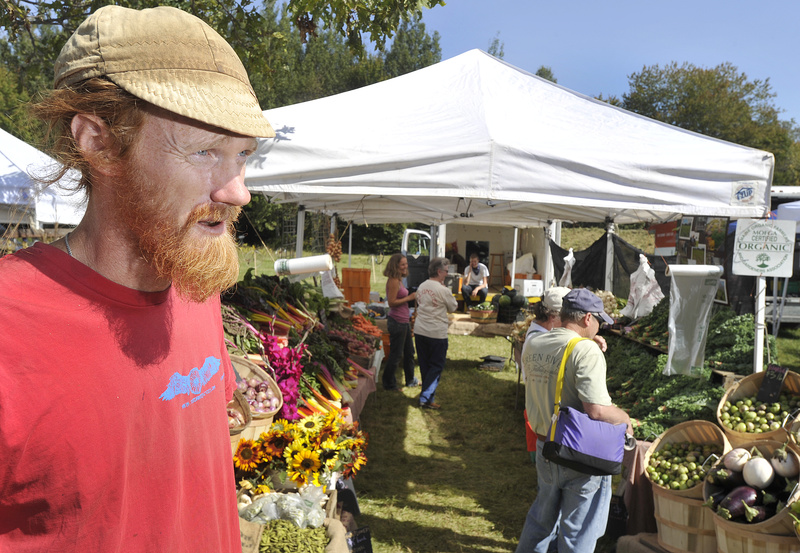UNITY — Instead of the typical fair staples like cotton candy and carnival rides, the Common Ground Country Fair draws crowds seeking veggie burgers and workshops on worm composting.
The fair, which opened Friday, is expected to draw about 60,000 people over the weekend. Organized by the Maine Organic Farmers and Gardeners Association, the fair has grown to 730 exhibits and 718 scheduled events that showcase a healthy, rural Maine way of life, said fair director Jim Ahearne.
“I think the interest comes from people’s concerns about their own health, the environment’s health and the local economy’s health,” Ahearne said. “We’re essentially a rural state and an agriculturally productive state. We have the opportunity to be more connected to where food is coming from.”
While the fair is limited in size by the footprint of the fairgrounds, there’s a waiting list for vendors to join the two farmer’s markets, as well as the crafts market and the energy and shelter exhibits, Ahearne said.
Food vendors feature organic treats such as shiitake mushrooms, squash sandwiches and veggie burgers. The fair’s food policy mandates that all the food sold there be organic and from Maine, with some small exceptions.
Brittanie Holt, 25, of Burnham, was drawn to organic food after doing research on pesticides and genetically modifed foods.
“I have a child and I want to get him started on the right, healthy path,” Holt said.
Even though it may be more costly to buy organic food, Holt said she finds ways to save in other areas of her life so she can make organic food a priority.
“I think in the past few years, with uncertainty around the economy and it being a tumultuous time in the world, local food and organic food offers some security. You know it came from that farm just down the road and that farm will be there for years,” Holt said.
Adam Nordell, a vendor at the farmer’s market, sells corn meal and a mix of vegetables.
“The consumerism of the past, with glossy magazines and strip malls and sprawl, people are done with that,” he said. “They want to know the history – where and how – their food is grown.”
This story will be updated.
Send questions/comments to the editors.



Comments are no longer available on this story